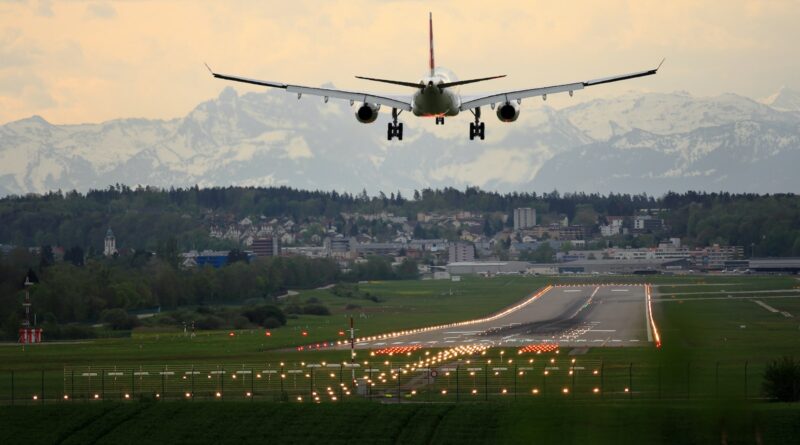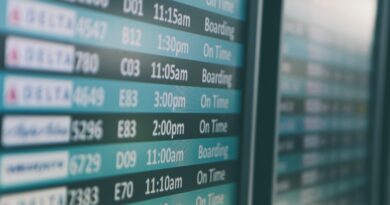Understanding EU Regulation 261/2004: Rights of Air Passengers
Understanding EU Regulation 261/2004: Rights of Air Passengers
EU Regulation 261/2004 is a European Union law designed to protect the rights of air passengers during air travel. It ensures that travelers who experience flight delays, cancellations, or are denied boarding due to overbooking, are given the necessary care and compensation.
Scope of the Regulation
Regulation 261/2004 applies to all flights departing from airports within the EU, regardless of the airline. It also applies to flights arriving in the EU from outside the EU, provided that the operating airline is headquartered in an EU member state. It does not apply to flights from outside the EU to the EU operated by a non-EU airline.
Passenger Rights
1. Right to Information
The first principle of the regulation is that passengers have the right to be informed about their rights. Airlines are required to display information on passenger rights at their check-in counters in every airport where they operate.
2. Right to Care
This applies when passengers experience long delays, cancellations, or are denied boarding. The airline must provide meals and refreshments in relation to the waiting time, two telephone calls, emails, or faxes, and if needed, hotel accommodation and transport between the airport and the hotel.
3. Right to Compensation
In case of long delays (3 hours or more), flight cancellations, or denied boarding due to overbooking, passengers are entitled to financial compensation. The amount varies between 250 and 600 euros depending on the flight distance and the length of the delay. Importantly, this compensation is not due if the delay or cancellation is caused by extraordinary circumstances, which could include severe weather conditions, security risks, or strikes.
4. Right to Reimbursement or Re-routing
If the flight is cancelled, or delayed for more than 5 hours, passengers have the right to withdraw from their travel plans. In such cases, the airline must offer a choice between the reimbursement of the ticket and a return flight to the first point of departure or re-routing to their final destination.
Interpretation by Court of Justice of the EU (CJEU)
The CJEU has clarified certain aspects of the regulation in several landmark cases. For instance, the Court has confirmed that passengers can claim compensation for flights delayed by 3 hours or more, equivalent to the compensation for cancelled flights.
Moreover, the concept of “extraordinary circumstances” has been clarified. Airlines cannot claim extraordinary circumstances due to technical problems discovered during routine aircraft maintenance, nor can they claim extraordinary circumstances due to a failure of their flight management systems.
What to do as a passenger
Here are a few practical steps passengers whose flights are late or cancelled should consider to ensure their rights are upheld according to EU Regulation 261/2004:
- Check Eligibility: Understand the circumstances under which compensation applies. As a rule of thumb, you’re likely eligible for compensation if you’re departing from an EU airport, or arriving at an EU airport on an EU-based carrier, and your flight was delayed by 3 or more hours or cancelled altogether, and the reason for delay/cancellation wasn’t due to extraordinary circumstances.
- Collect Necessary Information: Be sure to document the delay or cancellation, including the reason given by the airline. Save all communication and notices from the airline, your boarding pass, tickets, receipts, and any other relevant documents. Make a note of the actual arrival time at your destination.
- Claim Your Right to Care: If you’re waiting at the airport due to delay or cancellation, remember that airlines are required to provide meals, refreshments, and in some cases, accommodation. Do not hesitate to assert this right. Keep receipts of any expenses you incur due to the delay/cancellation; you may be able to claim these back.
- Contact the Airline: Notify the airline about your intent to claim compensation under EU 261. You can do this through the airline’s customer service channels. Be clear and concise, stating the flight details and the compensation you are seeking.
- Submit a Formal Claim: If you don’t receive a satisfactory response from the airline, submit a formal claim. This will typically involve filling out an online form on the airline’s website, or sending a letter or email. Include as much detail as possible, including the nature of the disruption, the flight number and date, your personal details, and the compensation you’re seeking.
- Seek Professional Help if Necessary: If your claim is rejected or ignored, you might consider getting help from a claims agency that specializes in EU 261 claims. Be aware they will take a percentage of your compensation as their fee, but using such a service can reduce the hassle and increase the chances of success, especially for complex claims.
- Escalate the Issue: If your efforts to secure compensation are unsuccessful, you may choose to escalate the issue to a national enforcement body in the country where the incident occurred. In some countries, you might also have the option of pursuing a small claims action against the airline.
Remember, the key to pursuing a successful claim under EU 261 is to be well-informed about your rights, keep meticulous records, and be persistent.




